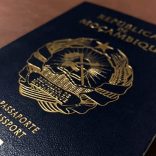Ghana approves visa waiver agreements with Mozambique, three other countries
Tourism under spotlight at Inhambane Investment Conference

File photo (For illustration purposes only) / Hotel Dona Ana, in Inhambane
Participants at the investment conference in the southern Mozambican province of Inhambane on Friday stressed the need to train and qualify all those involved in the tourism sector, if tourism is to become a lever for the development of the province.
They warned that tourism could not be a force for development until the conditions are established that will make the tourism industry in Inhambane sustainable.
There is no doubt that Inhambane, with its hundreds of kilometers of pristine beaches, with the spectacular islands of the Bazaruto archipelago, and with a wealth of marine and terrestrial wild life, has the ingredients for tourism success. Yet the number of tourists visiting Inhambane is in decline.
This is blamed on a range of factors, including a lack of qualified staff with the appropriate professional skills, as well as problems with the services that support tourism – including transport, water supply, sanitation and electricity. Last year’s low level insurrection by the Renamo rebels must also have hit tourism.
Tourism manager and consultant Rui Monteiro told the conference that programmes must be developed to train workers in the tourism industry. Although there is a university-level training institute in Inhambane, the Higher School for Tourism and the Hotel Industry, Monteiro did not believe it was producing the skilled professional staff that are required.
He also insisted on a marketing strategy that would promote Inhambane, inside Mozambique and abroad as a first class tourism destination.
“Tourist marketing is often not considered in the state budget”, he said. “But it’s very important that we begin creating an awareness that marketing is an investment for our future”.
A second tourism consultant, Luis Sarmento, pointed out that any tourist destination must meet the three main demands of tourists – for meals, shelter and communications. He added that the public, business and social sectors “must work in partnership” to manage a tourist destination, and “must be duly prepared and qualified to plan the balanced development of this destination”.
Inhambane is regarded as the main tourist destination in the country. An estimated 60 per cent of leisure tourism is concentrated in this province.













Leave a Reply
Be the First to Comment!
You must be logged in to post a comment.
You must be logged in to post a comment.